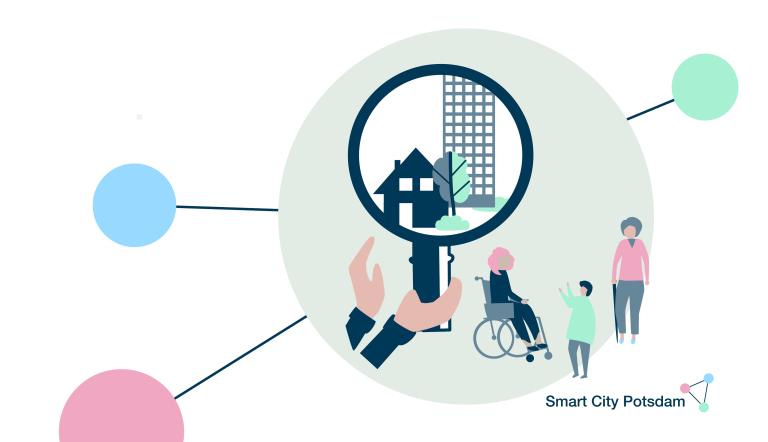
The German population is ageing. At the same time, birth rates are declining. The associated demographic change is one of the greatest challenges of the coming decades, with far-reaching effects on many areas of society.
But what does this mean in terms of urban development, and specifically for life in neighbourhoods, when larger population groups become in need of support or even care due to their advanced age and thus disappear from neighbourhoods or neighbourhood life?
The measure 'Togetherness in the District' addresses these connections and aims to explore how Potsdam's neighbourhoods will change in the future concerning ageing population groups, what social 'follow-up costs' are to be expected and how older people and people with support needs can be integrated into neighbourhood life.
The goal is to enable older people and people with support needs to remain in their own homes through appropriate digitalisation and technology AND to actively integrate them into neighbourhood life through targeted measures. In doing so, Potsdam aims to become a pioneer for integrative urban development in Germany, addressing both the challenges of demographic change and the far-reaching tasks of an increasingly overwhelmed health and care system.
This sub-project will be implemented in the Bornstedt neighbourhood.
Contact AG Smart City: AG-Smart-City@rathaus.potsdam.de
